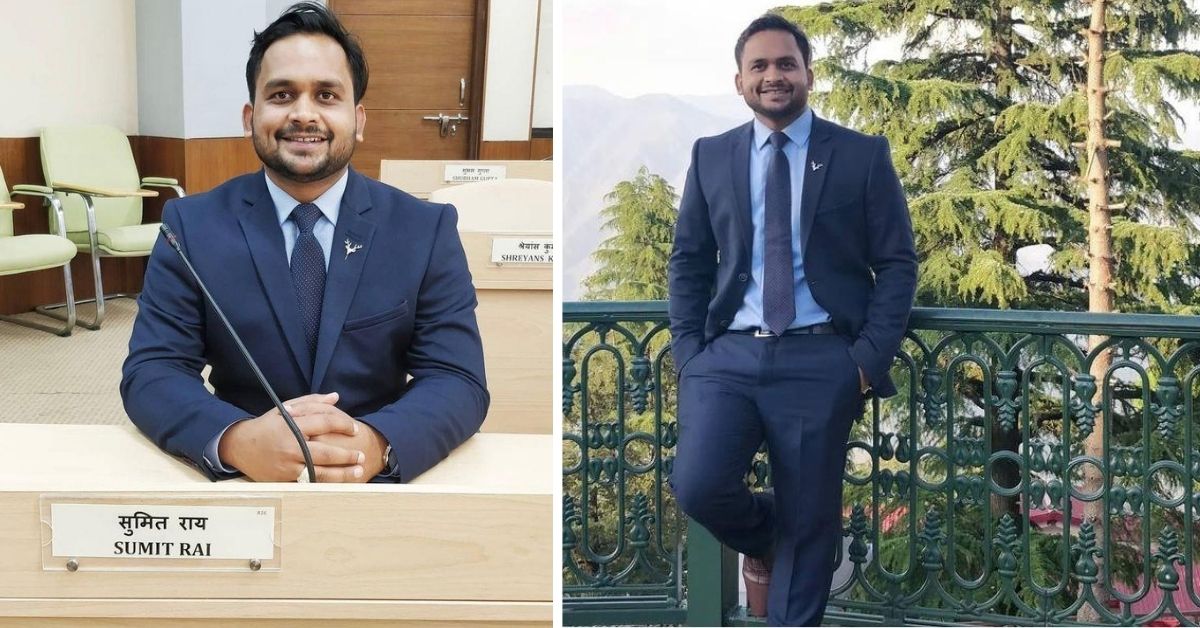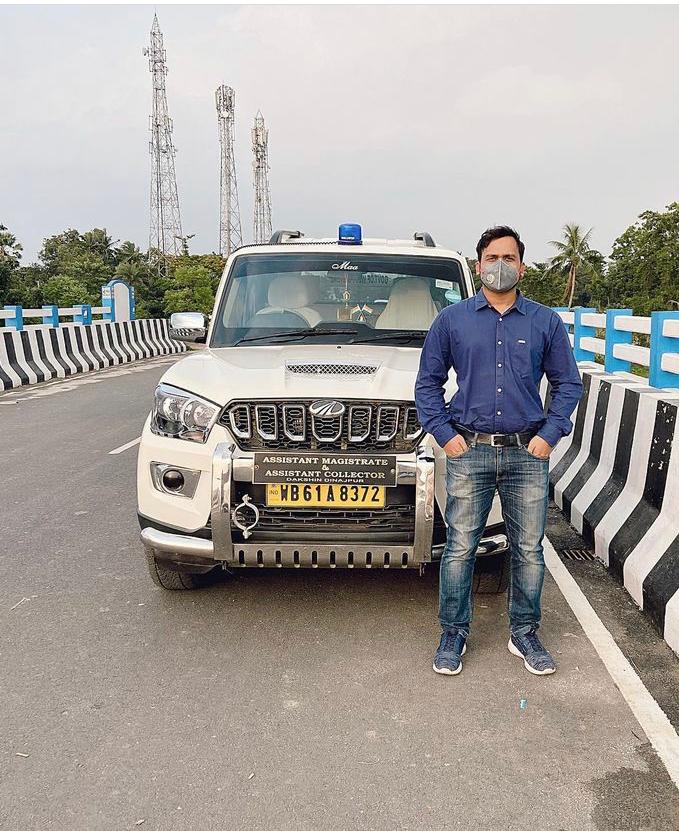5 Attempts, 4 Failures & Juggling a Full-Time Job: IAS Officer Shares His Journey
Sumit Kumar Rai secured an All India Rank (AIR) of 54 in UPSC CSE 2018. He shares tips and the strategy that worked for him in his fifth attempt.

A 2013 graduate from the Indian School of Mines, Dhanbad, Jharkhand, Sumit Kumar Rai was fairly certain of wanting to appear for the Union Public Service Commission (UPSC)’s Civil Service Examination (CSE). A petroleum engineer by qualification, Sumit worked with a private organisation for six years from 2013 to 2019.
Sumit was preparing for the CSE along with managing a full-time job. In his fifth attempt in 2018, he managed to clear the examination with an All India Rank (AIR) of 54 and landed a position with the Indian Administrative Service (IAS).
Speaking to The Better India, he says, “While I was doing well and also earning well in my job, I wasn’t satisfied. The job was monotonous and I knew that I had the potential to do more and serve the country better. That was my sole motivation for attempting the CSE five times.” The flipside of attempting the exam so many times is the frustration that accompanies it and learning to deal with it is imperative, says Sumit.
“Every serious UPSC aspirant must understand that the CSE is a test of your mental strength. There are three stages to this examination, namely prelims, mains and the interview stage. Each time you appear for the exam you may or may not clear one or more stages. However, ensure that each time you learn something new, it helps you grow.”
The first few days after you get the result and do not see your name is always painful. But Sumit says it is important to look at the larger picture.
Sumit shares tips that worked for him of appearing for CSE while juggling a full-time job.

1. CSE – an exam that tests your ability to express:
Sumit says that the examination is a test of how well one expresses themselves. “Even if you do not read too many books but have keen observational skills, use those skills to weave a good answer. In your writing, you should be able to convince the examiner of what you are trying to convey. Be selective in what you read and what information you choose to retain from the exam point of view,” he says.
In short, one needs to do smart studying to ensure that the syllabus is completed without spending too much time on each topic.
2. Customise the strategy to suit your needs:
“Each officer will have their own strategy that they follow. It is important that you read and learn about it all to make your own strategy. Customise with the best points from everyone’s plans. Do not try and cover everything mentioned in the syllabus. Try ‘studying smart’ by looking at previous year question papers and analysing the important topics,” says Sumit. For the purpose of this examination, being smart in the preparation will help you do well.
3. Plan your day ahead:
This is especially true for aspirants who are working full-time and preparing for CSE. “Make good use of all the time on hand. I would wake up and spend at least three hours studying before I headed out to work. Even during the commute, I would either read the newspaper or listen to some audio that was related to a topic I was studying,” says Sumit. Each evening, depending on the workload of the day Sumit says that he would put in another few hours of studying. On an average, Sumit would clock close to five to six hours of studying each day.
4. Give mock tests their due:
“Very often aspirants continue to prepare without stopping to assess how well they have grasped the topic. Attempting mock tests becomes important for self-evaluation. It is a tool that will help you recollect all you have been studying and also test your knowledge and recollection,” says Sumit. This becomes necessary when attempting the mains.
This will also help aspirants manage their time better and also in structuring their answers in a cohesive manner. “Attempting the mock tests from an examiner’s point of view is also essential. It gives you a feel of things to come,” he adds.
5. Technology as an aid:
Sumit says that he used apps like Evernote to make notes and go back and revise. He was also part of a few Telegram channels and says that it helped him revise on the go. “There are various Telegram groups, which one can join to help prepare better. One must ensure that they do not get lost in all the content that is posted. Sifting through and only utilising what you need is important.” Every morning you can consider downloading the newspaper The Hindu from the Telegram group as it saves on time, he adds.
6. Learn to think on your feet:
One of the ‘googly’ questions that came his way during the interview stage was about why he kept attempting the CSE despite holding a good lucrative corporate job. Sumit says, “I told them about how when posted in Rajasthan there was a 12 hour shift we were part of. I would study whenever I had the chance and even after my shift when I would be in my bunk, I would use the time to study. I never missed an opportunity to pick up the books and prepare.” Sumit attributes his ability to think on his feet that helped him during the interview.
7. Make changes to your mindset:
Since Sumit was preparing while working he shares some mindset changes that helped him. He says, “Treat your job as a temporary phenomenon. Remember that you have a small role to play in the organisation. Do your part, be happy and keep working on your larger goals. Don’t run after appraisals or becoming the best at the workplace.”
He further adds, “Avoid confrontation or ego-clashes at the workplace. This will help in keeping you focused on your UPSC preparation.” He urges aspirants to be sincere in their work and ensure that they give their 100 per cent.
“Whenever there is a sliver of doubt or a sense of hopelessness that crosses your mind, always remind yourself of why you want to be in the service, that will help you sail through,” he concludes.
(Edited by Yoshita Rao)
If you found our stories insightful, informative, or even just enjoyable, we invite you to consider making a voluntary payment to support the work we do at The Better India. Your contribution helps us continue producing quality content that educates, inspires, and drives positive change.
Choose one of the payment options below for your contribution-
By paying for the stories you value, you directly contribute to sustaining our efforts focused on making a difference in the world. Together, let's ensure that impactful stories continue to be told and shared, enriching lives and communities alike.
Thank you for your support. Here are some frequently asked questions you might find helpful to know why you are contributing?













